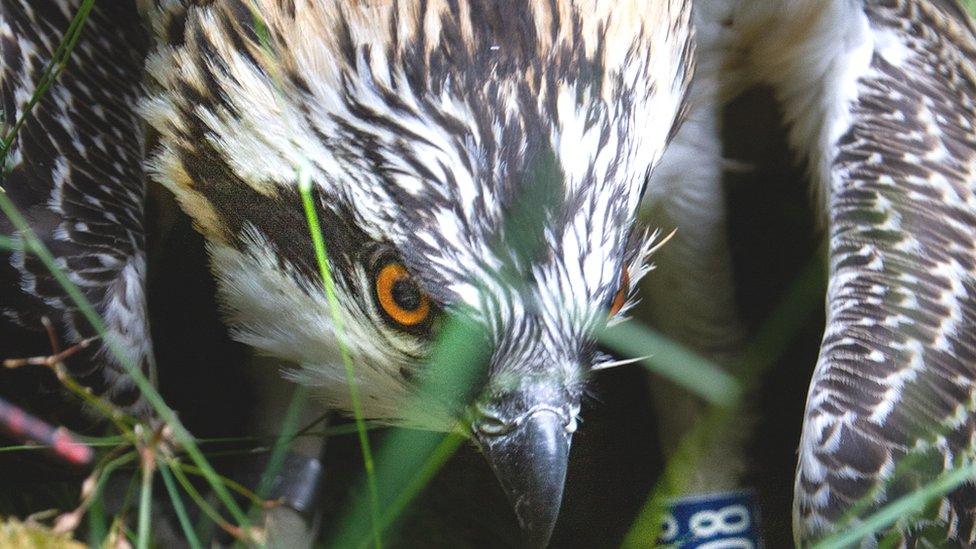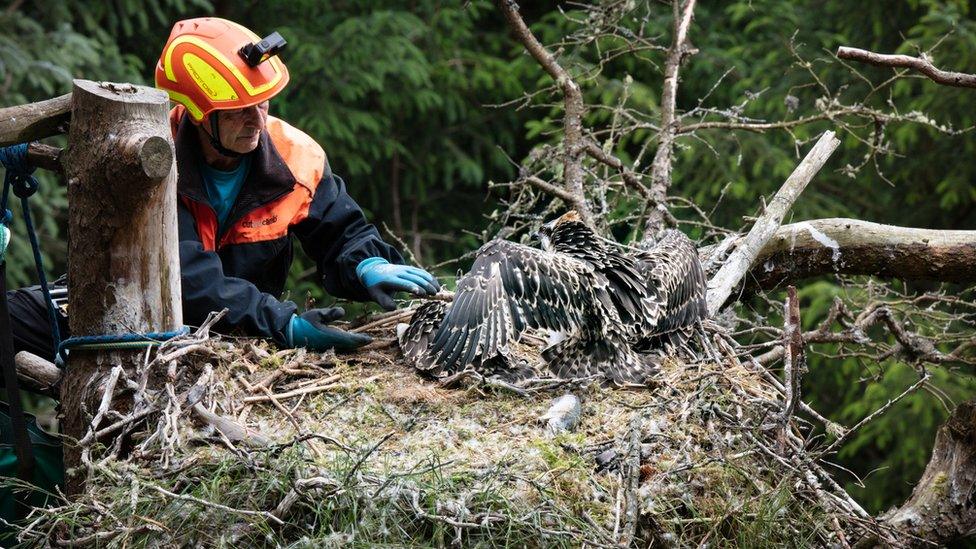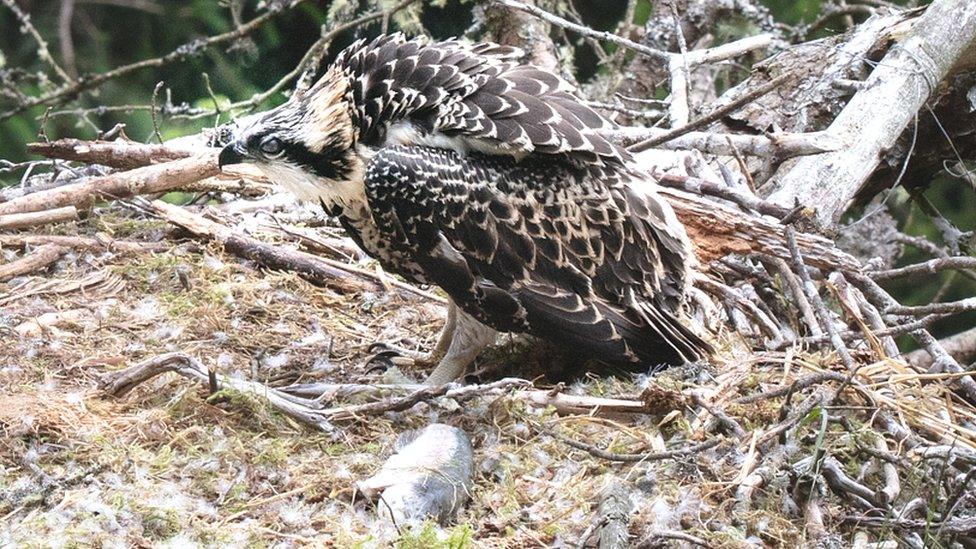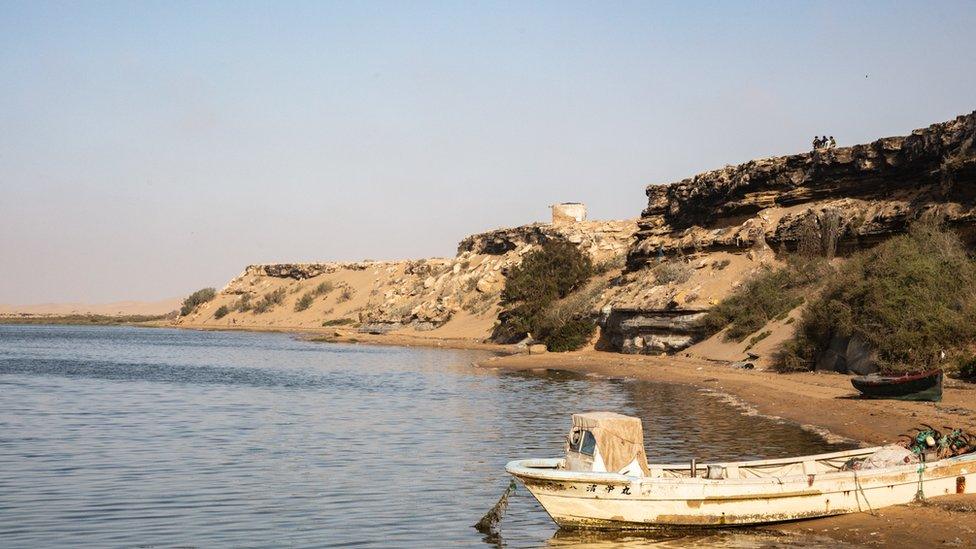Scottish osprey feared dead resurfaces in Morocco
- Published

Glen first surprised conservationists by hitching a ride on two cargo ships
An osprey from the Scottish Borders which was feared dead in Portugal has resurfaced in Morocco.
Conservationists following the bird's progress thought he might have been killed by nearby pylons after the signal was lost from his GPS tracker.
Local police joined the search for the osprey - called Glen - but no trace could be found.
His tracker then came back to life nearly two days later and revealed he had made a 36-hour flight to Morocco.
Glen is the last surviving osprey of three which were tagged in the Tweed Valley to gain greater insight into their migration.

Three young ospreys were tagged in the Borders to monitor their migration but Glen is the only survivor
He first surprised experts at Conservation Without Borders (CWB) when he hitched a ride on two cargo ships.
His latest drama unfolded on Friday morning when he landed on the roof of a fruit factory between Nazaré and Péniche in Portugal.
No further signal or indication of movement was received, prompting concerns he could have collided with nearby high voltage pylons.
By Saturday afternoon experts feared he must have died. The local police joined the search to try to track him down, without success.
Then on Sunday morning his GPS tracker came back to life, showing he was at the Baie de Khnifiss Biological Reserve in Morocco.

It was feared Glen might have collided with electric pylons and died
Diane Bennett from the Tweed Valley Osprey Project admitted they had feared the worst.
"We became concerned about Glen when the tracker stopped sending back data," she said.
"His tracker has been reliable for the past three months sending regular information from Spain and Portugal.
"With no signal from a good GPS area we thought that he had been injured - or worse collided and died at the fruit farm."
However, she said Glen "surprised them all" when his tracker pinged back data from Morocco.
Sacha Dench, CWB founder, said it was an astonishing feat of endurance.

Glen has now made it to Morocco and a spot where there are plenty of fish
"Glen was flapping his wings solidly for 36 hours - that's just amazing for a young osprey to do," she said.
"Looking at the wind directions when he left Portugal he narrowly escaped being blown out to sea when the wind pattern changed to his advantage.
"He again struck lucky in hitting landfall really close to a small and rare desert oasis known as Khnifiss where he slept for 11 hours before setting off to find fish."
She said ospreys that had learned the route usually crossed the sea at the Strait of Gibraltar which was the shortest possible crossing.
"Glen is an adventurer and seems to be able to escape so many tough situations he gets into - and surprise us all," she said.
"The most incredible thing is the amount of information we are getting from his journey and all the people that are getting involved."
You can find out more about the migration of Scotland's ospreys on Flight of the Ospreys on BBC Radio 4 every Tuesday at 09:30.
Related topics
- Published12 November 2022

- Published20 September 2022
